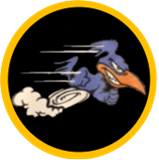Grade 3 & 4 Room P1
September 11, 2025
Rooms P1 and P2 Overview (Grade 3 and 4 multiage)
Dear Parents/ Guardians,
Our names are: Mona Kaushal (P1) and Midge MacDonald (P2) and we will be your children’s teachers in Rooms P1 and P2. We are presenting to you an overview of what to expect for your child this 2025-2026 year at Robertson School! We are collaboratively planning the year together, so information is relevant for both classes.
Please note! The school is NUT FREE (of all types). We would also appreciate you sending a pre-filled reusable water bottle to school for your child to drink throughout the day. There is a water bottle filling station they can use if they run out.
A reminder that the division also has a cellphone policy and NO students in elementary are to be on their phones at any time during the day (even lunch and recess). It is at your own risk if you send a phone with your child as the school is not responsible for any lost, stolen or damaged devices. Students are to hand phones to their teachers or keep them in their bags for the entire school day. In an emergency, please call the school, and not text or call your child on the cell phone.
Communication:
Communication of upcoming events and notices will be seen through printed or handwritten notices or online via the SeeSaw app. Each child has a personal bin to keep all paper communication in until they put it in their backpack to take home. Forms will also periodically be sent home in your child’s backpack. School events will be noted in the monthly newsletter sent out to the entire school. For urgent communication please expect phone calls or emails. Please do not hesitate to call, email or come in to see us if you have any questions or concerns.
Our emails are:
mkaushal@wsd1.org (Ms. Kaushal)
marmacdonald@wsd1.org (Ms.Mac)
Assessment and Evaluation:
Assessment will be an ongoing process throughout the school year. Your child’s progress will be monitored in a variety of ways such as through phonics, writing and math assessments, daily classroom work, discussion contributions, written and oral explanations, group projects and presentations, class participation and teacher observation. The children will also be assessed using self-reflections and reader responses.
Subject Overview: (Please note programming is catered to your child’s individual needs)
Language arts:
-Daily literacy circles which include activities such as journaling, writing reader’s responses and practising reading to self and others
-Working on phonics work
-Listening to reading such as during a teacher or peer read aloud
-Writing activities such as story writing, informational writing such as “how-to” s and persuasive writing. Writing related to inquiry projects will also be included
-Participating in guided reading and phonics groups with the teacher or other adult
Math:
-Number sense- students will be able to represent and describe whole number using pictures and symbols
-Basic operations of math (addition, subtraction, multiplication, division and fractions)
-Mental math including learning how to describe how they got their answer and application of math strategies such as skip-counting, adding one more and doubling or halving strategies
-Measurement (area, perimeter, volume and the passage of time)
-Identifying and extending patterns
-Analysing 3D and 2D shapes in math and the world around us
-Using counters, shapes and games to make learning fun and engaging
Science
We will be studying science using inquiry, research and questioning. Assignments may include presentations, group work, discussions and experiments.
Social Studies:
We will be discussing topics related to community, Canada, what it means to be a Canadian and what it means to be a citizen. Social studies topics will be discussed as a group, researched using books and technology. Social studies may be integrated into the inquiry journey through mapping, citizenship and studying other parts of the world.
Health:
The class will concentrate on themes such as; citizenship and respect, a healthy body, safety (personal, internet, etc.) and mindfulness. We will also be looking into healthy strategies to cope with big emotions such as anger, stress or sadness. We will be starting Zones of Regulation in early fall.
Art:
During art class we are going to be examining a variety of art forms and how to create art. We will also spend time looking at art and discussing it. Drama will also be a part of the curriculum and may be incorporated into the ELA curriculum.
Thank you for your support in your child’s learning experience! I look forward to teaching and learning with your child
-Ms. Mac Ms. Kaushal
Room P2 Room P1


